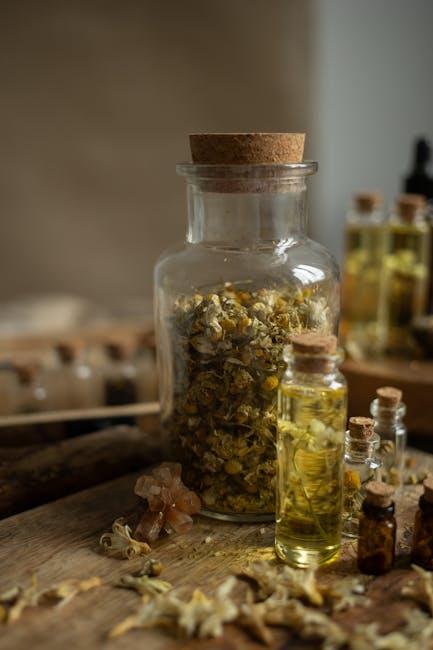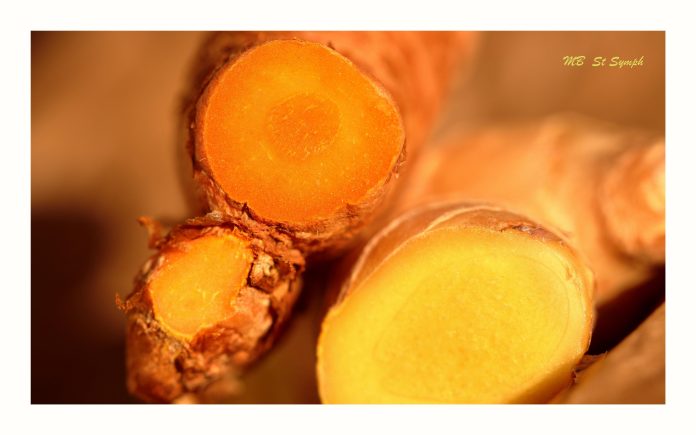As the seasons change, nature paints the world with vibrant hues, but for many, this transformation brings an unwelcome guest: seasonal allergies. The sneezes, sniffles, and watery eyes that accompany the arrival of spring or fall can turn a picturesque scene into a personal battleground. While over-the-counter medications offer relief, an increasing number of people are turning to the wisdom of nature to soothe their symptoms. In this article, we explore an array of natural remedies that promise to reduce the grip of seasonal allergies, harnessing the power of plants, foods, and time-tested practices. Whether you’re a long-time sufferer or a newcomer to the world of allergies, these gentle, holistic approaches may offer the relief you seek, allowing you to embrace the beauty of each season with open arms.
Herbal Allies in Allergy Relief
Incorporating herbal allies into your wellness routine can offer a gentle yet effective way to manage seasonal allergies. Butterbur, for instance, has been recognized for its potential to reduce nasal congestion and inflammation. The plant’s natural compounds can help to stabilize the body’s response to allergens, providing relief without the drowsiness often associated with conventional antihistamines.
Another potent herbal option is stinging nettle. Known for its anti-inflammatory properties, stinging nettle can serve as a natural antihistamine. Consuming it in tea or capsule form may alleviate sneezing and itching. Additionally, quercetin, a bioflavonoid found in various plants, is praised for its ability to block the release of histamines. Foods rich in quercetin, like apples and onions, can be incorporated into your diet, or you might consider supplements for a more concentrated dose.
- Butterbur: Reduces nasal congestion and inflammation.
- Stinging Nettle: Acts as a natural antihistamine.
- Quercetin: Blocks the release of histamines.

Dietary Adjustments for Symptom Management
Embracing specific dietary changes can be a natural and effective way to manage the pesky symptoms of seasonal allergies. Certain foods possess anti-inflammatory and antihistamine properties that may help to alleviate discomfort. Incorporating these foods into your daily meals can make a noticeable difference:
- Quercetin-rich foods: Apples, berries, and onions are excellent sources of quercetin, a natural compound known to reduce histamine levels.
- Omega-3 fatty acids: Found in fatty fish like salmon and flaxseeds, omega-3s can help decrease inflammation and improve overall immune response.
- Probiotic-rich foods: Yogurt, kefir, and fermented vegetables can support gut health, which is closely linked to the immune system’s function.
- Vitamin C: Citrus fruits, bell peppers, and broccoli are packed with vitamin C, which may help to stabilize mast cells and reduce histamine release.
While adding these foods to your diet, it’s equally important to avoid certain items that may exacerbate allergy symptoms. Consider reducing the intake of:
- Dairy products: For some, dairy can increase mucus production and worsen congestion.
- Processed foods: These often contain artificial additives that can trigger inflammation and allergic reactions.
By mindfully adjusting your diet, you may find that your body’s response to allergens becomes more manageable, offering a natural pathway to relief.

Lifestyle Changes to Minimize Allergen Exposure
Embracing certain lifestyle adjustments can significantly reduce your exposure to allergens and provide relief from seasonal allergies. Start by keeping windows closed during high pollen seasons to prevent outdoor allergens from entering your home. Instead, use air conditioning with a clean filter to maintain indoor air quality. Regularly washing bedding in hot water and using hypoallergenic pillowcases can also help minimize dust mites and other indoor allergens.
Consider making your home a no-shoe zone to prevent tracking in outdoor allergens. Opt for hard flooring over carpets, as they are easier to clean and less likely to harbor allergens. Regular vacuuming with a HEPA filter vacuum can further reduce indoor allergen levels. Additionally, using a dehumidifier can help maintain optimal indoor humidity levels, discouraging mold growth. These changes, although small, can create a more allergy-friendly environment, making your home a sanctuary from seasonal allergens.

Essential Oils and Aromatherapy for Allergy Support
Embrace the soothing power of essential oils to alleviate the discomfort of seasonal allergies. Aromatherapy offers a natural way to support your body’s response to allergens, leveraging the therapeutic properties of various oils. Lavender, known for its calming effects, can help ease the inflammation and irritation that often accompany allergic reactions. Similarly, eucalyptus oil, with its refreshing aroma, acts as a natural decongestant, opening up the airways and facilitating easier breathing.
Incorporate these oils into your daily routine by using a diffuser or adding a few drops to a warm bath. Here are some popular oils that can provide relief:
- Lavender: Calms inflammation and irritation.
- Eucalyptus: Acts as a natural decongestant.
- Peppermint: Clears sinuses and boosts energy.
- Lemon: Detoxifies and uplifts mood.
To maximize the benefits, consider creating a custom blend tailored to your specific needs. Whether you’re diffusing oils in your home or using them in a massage, these natural remedies can provide a gentle yet effective way to combat the symptoms of seasonal allergies. Remember to always perform a patch test before using any new oil on your skin to ensure there are no adverse reactions.
Insights and Conclusions
As the seasons change, bringing with them a symphony of vibrant colors and refreshing breezes, they also carry the less welcome symphony of sneezes and sniffles for many. While the modern world offers a plethora of pharmaceutical solutions, nature herself whispers age-old remedies that resonate with simplicity and harmony. From the soothing embrace of herbal teas to the gentle touch of essential oils, these natural allies stand ready to offer relief.
Embracing these remedies invites us to reconnect with the earth’s wisdom, reminding us that sometimes the most effective solutions are those that have been growing quietly at our feet. As you explore these natural paths to alleviate your seasonal allergies, may you find not just relief, but also a renewed appreciation for the gentle power of nature’s medicine cabinet.
whether you choose to sip, inhale, or simply breathe deeply in the presence of nature, let these remedies be a testament to the timeless bond between humanity and the natural world. Here’s to clearer breaths and calmer days ahead, guided by the gentle hands of nature.


































